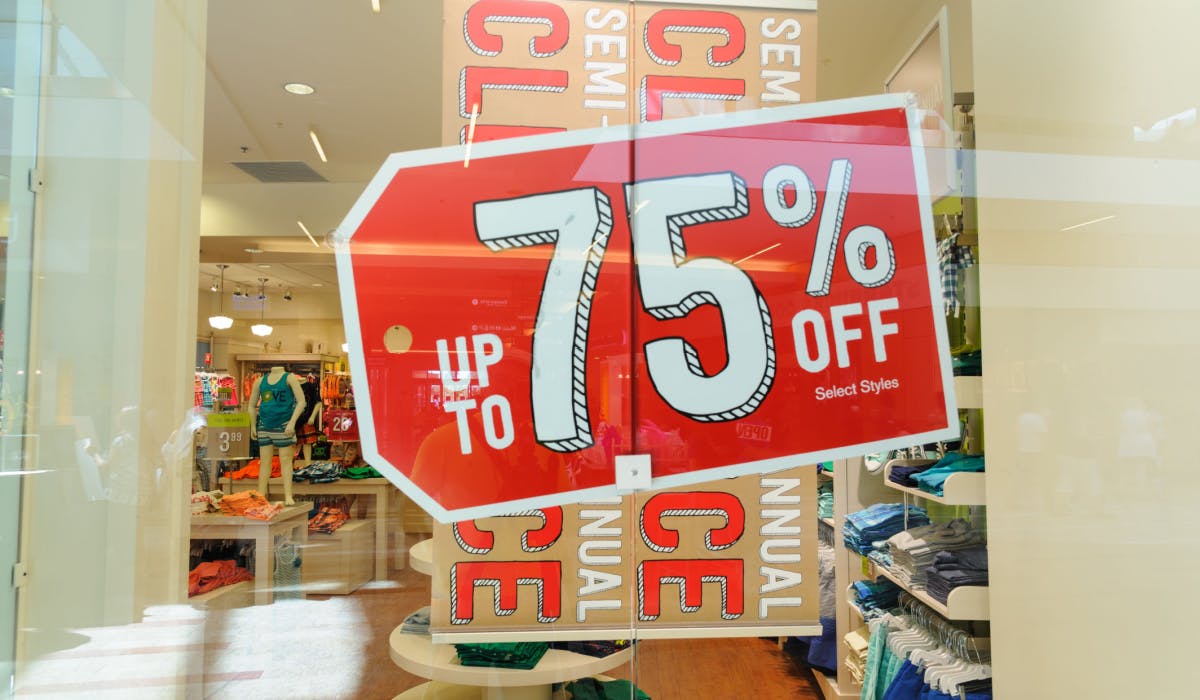
Mastering the Retail Game: How Savvy Shoppers and Strategic Promotions Transform the Industry

Retailers intensify promotions to attract price-conscious consumers, resulting in nearly 25% of FMCG products sold under offers in the latest four-week period, driving sales growth
Source: Shutterstock
The latest data from the British Retail Consortium (BRC) and KPMG reveals that a growing number of retailers in July actively provided discounts in order to motivate budget-conscious consumers to make purchases and spend their money.
Despite experts' warnings against using "senseless" price promotions to drive short-term sales, data from the BRC and NielsenIQ indicates a decline in shop prices in July, marking the first monthly fall in two years with a decrease of 0.1% compared to June. Additionally, shop price inflation decreased to 7.6% from 8.4% in June.
Retailers have contributed to the decrease in inflation by reducing prices and offering sales. Helen Dickinson, CEO of the BRC, highlights that clothing retailers have played a significant role in this price reduction, especially due to the wet weather leading to increased promotional efforts and higher footfall. Interestingly, the rise in promotional activity extends beyond clothing stores and includes categories that are not typically influenced by weather conditions.
Around 23% of FMCG purchases in the four weeks to 15 July were made on offer, as per data provided by NielsenIQ Homescan. In comparison, the figure stood at 20% during the corresponding period last year. This represents the highest level of FMCG products bought under offer in the past 12 months, excluding the Easter and Christmas periods.
| % of FMCG value sales bought on offer | ||||
| 4 weeks ending : | ||||
| 18th July 2020 | 20% | |||
| 17th July 2021 | 21% | |||
| 16th July 2022 | 20% | |||
| 15th July 2023 | 23% | |||
| Source: NIQ Homescan | ||||
Promotional activity played a crucial role in driving FMCG sales in May and June due to bank holiday events and sunny weather. However, in the absence of these external factors, retailers relied heavily on promotional efforts to generate demand. NIQ reports that despite lacklustre weather, supermarkets engaged in intense competition through discounting, with a particular focus on loyalty member pricing. Notably, Tesco, Sainsbury's, Morrisons, and Co-op have implemented loyalty card schemes that offer exclusive discounts to their members.
In the fiercely competitive UK supermarket industry, it is crucial for each of these players to be regarded as offering the most attractive discounts.
"There is a noticeable increase in the number of promotional activities being implemented by retailers to attract customers, as they strive to maintain their market share," explains Paul Martin, Head of Retail at KPMG UK.
In the present climate, shoppers are increasingly conscious of where they can find bargains and actively seek out discounts. Concurrently, Mike Watkins, the head of retailer and business insight at NielsenIQ, asserts that shopper behavior is evolving in response to the financial strain of the cost of living crisis. This transformation in behavior may involve purchasing solely during promotional periods.
Retailer Next exceeded expectations and outperformed last year with its clearance sale, generating an additional £4m in pre-tax profit. This positive result indicates a growing interest from consumers in discounted products. Despite the ongoing impact of bad weather on in-store visits, retailers might be seeking to capitalize on the August bank holiday to stimulate demand. To tap into this potential, retailers might need to once again resort to promotional activities.
According to GlobalData retail analyst Tash Van Boxel, retailers should increase investment in marketing promotional events and offer competitive discounts in order to stimulate sales growth and increase volume on bank holidays. This suggestion is supported by the company's data, which reveals that over 70% of UK shoppers believe that retailers should implement more promotions during bank holidays. Although price promotions and discounts might appear to be a simple method for retailers to drive demand in the present situation, it poses a potential risk to their brands.
Speaking in October, Les Binet, group head of effectiveness at adam&eveDDB and co-author of The Long and the Short of it, cautioned against "senseless" promotions. Despite their apparent ability to boost sales, Binet stressed that marketers should realize that this increase is merely an illusion.
Mark Ritson, our website columnist, has also expressed his opposition to price promotions, citing the undeniable harm they cause to brand equity, customer loyalty, and corporate profitability.
Despite the warnings concerning the negative impact of discounts on a brand, it appears that numerous marketers are still opting for them. The most recent IPA Bellwether report revealed that a significant number of marketers have increased their sales promotion budgets during the second quarter of the year.







